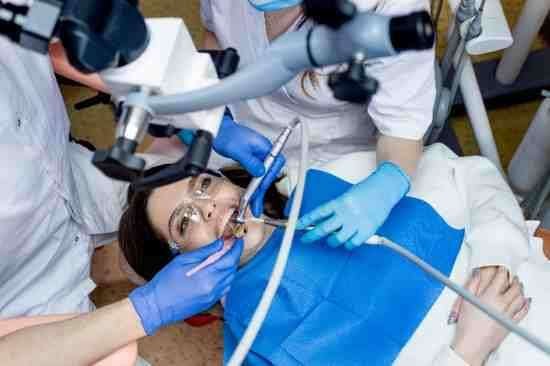Dental implants have become one of the most effective and reliable treatments for replacing missing teeth. They restore not only the function of natural teeth but also significantly enhance appearance and confidence. However, systemic health conditions such as diabetes can play a crucial role in determining the success of an implant procedure. This article explores in depth whether diabetes can affect dental implants, the potential challenges patients face, and how proper management makes successful treatment entirely possible.
Understanding Dental Implants
Dental implants are titanium posts that are surgically placed into the jawbone to act as artificial tooth roots. Once integrated, they support crowns, bridges, or dentures, creating a natural and functional replacement for lost teeth. Their long-lasting nature and aesthetic appeal have made dental implants the treatment of choice for many individuals, including those searching for reliable options such as dental implants in Shrewsbury.
However, despite their durability, implants depend largely on the body’s healing and bone integration process. For patients with diabetes, this process may not always be as straightforward as for those without existing medical conditions.

The Link Between Diabetes and Oral Health
Diabetes has well-documented effects on oral and overall health. High blood sugar levels can compromise wound healing, reduce the body’s ability to fight infections, and affect bone quality. These factors are especially significant in dentistry because they can influence how well an implant heals and stabilises in the jawbone.
Poorly managed diabetes increases the risk of gum disease, oral infections, and delayed healing. Since implants rely on osseointegration the direct bonding of titanium with bone tissue delays or complications during healing can hinder implant success. For patients visiting a private dentist in Shrewsbury, understanding how these factors play a role helps set realistic expectations and reinforces the importance of pre- and post-treatment care.
Can Diabetics Still Get Dental Implants?
Yes, individuals with diabetes can still receive dental implants successfully. The critical factor is whether their condition is well-controlled. Patients with controlled diabetes have healing abilities far closer to those without diabetes, which greatly increases the chance of successful osseointegration. In contrast, poorly controlled diabetes may complicate or even reduce the long-term survival of implants.
Before recommending a dental implant Shrewsbury dentists often request blood sugar records and may collaborate with a patient’s GP or specialist to ensure stability. Once blood glucose levels are within a safe range, implant surgery may proceed with little added risk.
Key Challenges Diabetic Implant Patients May Face
- Higher risk of gum infections (peri-implantitis) due to reduced immune function.
- Delayed osseointegration may lengthen recovery times.
- Greater difficulty in achieving long-term implant stability if blood sugar is poorly managed.
Benefits of Dental Implants for Diabetic Patients
Despite challenges, dental implants offer immense advantages to diabetic patients when treatment is appropriately planned and managed. Missing teeth not only affect chewing and speech but can also lead to poor dietary choices, which is particularly concerning with diabetes. Implants restore function, enabling healthier eating habits that improve blood sugar management and general nutrition.
A confident smile further supports psychological well-being, reducing stress that indirectly contributes to improved diabetic control. Choosing a private dentist in Shrewsbury experienced in treating diabetic patients ensures safe procedures and a personalised approach to oral health care.
Comparing Success Rates: Diabetic vs Non-Diabetic Patients
The success rates of dental implants in diabetic patients vary depending on the control of their blood sugar levels.
Patient Group | Implant Success Rate | Healing Timeline | Risk of Complications |
Non-diabetic patients | 95–98% | Normal (3–6 months) | Very low |
Controlled diabetic patients | 90–95% | Slightly slower (4–8 months) | Low to moderate |
Uncontrolled diabetic patients | 70–80% | Considerably delayed | High risk of infection or failure |
This table shows that while diabetes can affect dental implants, controlled cases align closely with the success rates seen in non-diabetic patients. The key is achieving and maintaining appropriate blood glucose levels before and after surgery
Preparation Before Dental Implant Surgery
When planning implant placement for a diabetic patient, several steps can improve overall outcomes:
- Monitoring blood glucose levels regularly before and after surgery.
- Strict oral hygiene routines to minimise infection risk.
- Avoiding smoking and alcohol, as these can exacerbate healing problems
Long-Term Implant Maintenance for Diabetics
Implant care does not end once the crown is placed. For diabetic patients, long-term maintenance is even more crucial. Regular dental check-ups ensure early detection of any signs of gum inflammation or implant issues. Daily oral hygiene using fluoride toothpaste, interdental brushes, and possibly medicated mouth rinses helps protect the gums and surrounding bone.
Seeing a private dentist in Shrewsbury at least twice a year is highly recommended for diabetic patients with implants. Routine professional cleaning reduces bacterial accumulation, which lowers the chance of gum or implant-related infections. Additionally, maintaining strict control over diet and blood glucose levels ensures enhanced long-term success.
Lifestyle Considerations That Influence Success
In addition to blood sugar management, lifestyle factors strongly affect dental implant outcomes. A balanced diet, regular exercise, and avoiding habits such as smoking or excessive alcohol consumption contribute significantly to oral health. Similarly, stress management techniques such as mindfulness or relaxation exercises can indirectly support diabetic patients by helping to maintain stable blood sugar.
Alternatives to Dental Implants for Diabetic Patients
While dental implants remain the preferred replacement for missing teeth due to their natural look and feel, some patients with uncontrolled diabetes may be advised against immediate implant surgery. In such cases, alternatives such as removable dentures or fixed dental bridges offer viable solutions until the patient’s condition stabilises. Once stability is achieved, implants may be revisited as a long-term option.

Conclusion
Diabetes does not automatically disqualify someone from receiving dental implants. With careful planning, proper medical collaboration, and disciplined lifestyle management, implants can be just as successful for diabetics as for non-diabetics. Patients considering a dental implant Shrewsbury should focus on controlled blood sugar, meticulous oral hygiene, and regular professional care to ensure lasting results. At EDS, our team carefully evaluates each patient’s medical condition and treatment goals, providing personalised implant solutions that prioritise safety, aesthetics, and long-term success.



